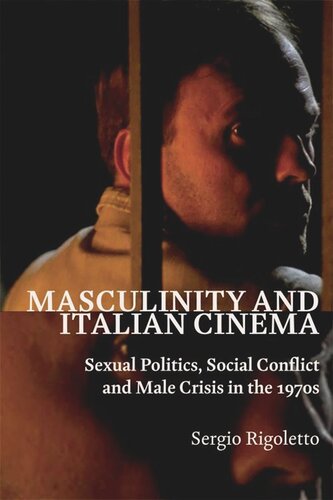

Most ebook files are in PDF format, so you can easily read them using various software such as Foxit Reader or directly on the Google Chrome browser.
Some ebook files are released by publishers in other formats such as .awz, .mobi, .epub, .fb2, etc. You may need to install specific software to read these formats on mobile/PC, such as Calibre.
Please read the tutorial at this link: https://ebookbell.com/faq
We offer FREE conversion to the popular formats you request; however, this may take some time. Therefore, right after payment, please email us, and we will try to provide the service as quickly as possible.
For some exceptional file formats or broken links (if any), please refrain from opening any disputes. Instead, email us first, and we will try to assist within a maximum of 6 hours.
EbookBell Team

0.0
0 reviewsHow did Italian cinema of the 1970s re-envision masculinity in response to sexual liberation? What role did broader socio-political concerns of the time play in this re-definition? To what extent did this re-envisioning of masculinity intersect with concurrent debates about the function of cinema as a political medium and a mass cultural phenomenon?
Masculinity and Italian Cinema takes the 1970s as an especially instructive period for rethinking the traditional trope of an inadequate male in crisis within Italian cinema. It explores how masculinity functioned in several films of the 1970s as a charged allegory for the many socio-political lacerations of the Italian nation and as a site of conflict and radical interrogation of ideas about gender and sexuality. Sergio Rigoletto re-examines a number of key films, including Bernardo Bertolucci’s The Conformist, Federico Fellini’s City of Women, Ettore Scola’s A Special Day, Pier Paolo Pasolini’s Teorema and Lina Wertmüller’s The Seduction of Mimì, in the light of gender and queer theory and considers the challenges that these films pose to received ideas about gender and sexuality of the time, and to some of the aesthetic and narrative conventions which have traditionally regulated the representation of men in film.